
Heart of Darkness is an 1899 novella by Polish-British novelist Joseph Conrad in which the sailor Charles Marlow tells his listeners the story of his assignment as steamer captain for a Belgian company in the African interior. The novel is widely regarded as a critique of European colonial rule in Africa, whilst also examining the themes of power dynamics and morality. Although Conrad does not name the river on which most of the narrative takes place, at the time of writing, the Congo Free State—the location of the large and economically important Congo River—was a private colony of Belgium's King Leopold II. Marlow is given a text by Kurtz, an ivory trader working on a trading station far up the river, who has "gone native" and is the object of Marlow's expedition.
Kurtz is a fictional character in Joseph Conrad's 1899 novella Heart of Darkness. A European ivory trader in Central Africa and commander of a trading post, he monopolizes his position as a demigod among native Africans. Kurtz meets with the novella's protagonist, Charles Marlow, who returns him to the coast via steamboat. Kurtz, whose reputation precedes him, impresses Marlow strongly, and during the return journey, Marlow is witness to Kurtz's final moments.

Boris Karloff (1887–1969) was an English actor. He became known for his role as Frankenstein's monster in the 1931 Frankenstein, leading to a long career in film, radio, and television.

Heart of Darkness is a 1993 television film adaptation of Joseph Conrad’s famous 1899 novella written by Benedict Fitzgerald, directed by Nicolas Roeg, and starring Tim Roth, John Malkovich, Isaach De Bankolé and James Fox.

"Bomber's Moon" was an American television play broadcast live on May 22, 1958, as part of the CBS television series, Playhouse 90. It was the 35th episode of the second season of Playhouse 90.
"The Hidden Image" was an American television play broadcast live on November 12, 1959, as part of the CBS television series, Playhouse 90. It was the fourth episode of the fourth season of Playhouse 90 and the 121st episode overall.
"To the Sound of Trumpets" was an American television play broadcast on February 9, 1960, as part of the CBS television series, Playhouse 90. It was the ninth episode of the fourth season of Playhouse 90 and the 126th episode overall.
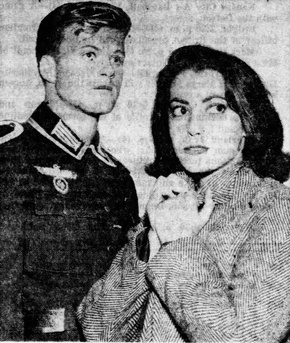
"In the Presence of Mine Enemies" was an American television play broadcast on May 18, 1960. It was the 16th episode of the fourth season of the CBS television series Playhouse 90, and also the final broadcast in the show's four-year run.
"Tomorrow" was an American television play broadcast on March 7, 1960, as part of the CBS television series, Playhouse 90. It was the 11th episode of the fourth season of Playhouse 90.
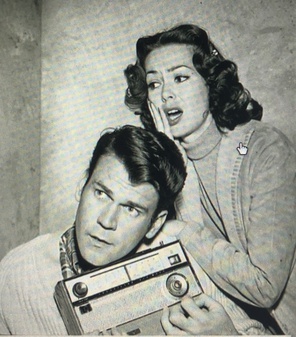
"Alas, Babylon" was an American television play broadcast on April 3, 1960, as part of the CBS television series, Playhouse 90. It was the 13th episode of the fourth season of Playhouse 90.

"A Town Has Turned to Dust" is an American television play broadcast live on June 19, 1958, as part of the second season of the CBS television series Playhouse 90. Rod Serling wrote the teleplay, and John Frankenheimer directed. Rod Steiger and William Shatner starred.
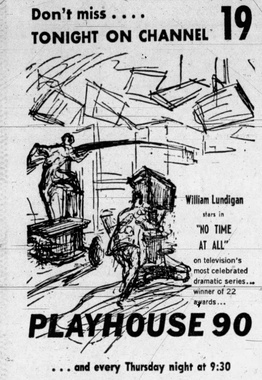
"No Time at All" was an American television film broadcast on February 13, 1958, as part of the CBS television series, Playhouse 90. It was the 23rd episode of the second season of Playhouse 90.

"The Family Nobody Wanted" was an American television play broadcast on December 20, 1956, as part of the CBS television series, Playhouse 90. It was the 12th episode of the first season of Playhouse 90.
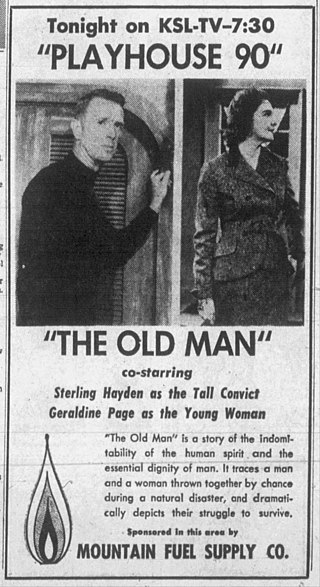
"Old Man" is an American television play broadcast on November 20, 1958, as part of the CBS television series, Playhouse 90. The production, starring Sterling Hayden and Geraldine Page, was adapted by Horton Foote from the short novel "Old Man" by William Faulkner. It was nominated for three Emmy Awards: for most outstanding program of the year; for best single performance by an actress (Page); and for best writing of a single dramatic program one hour or longer (Foote).

"Face of a Hero" is an American television play broadcast on January 1, 1959 as part of the CBS television series, Playhouse 90. John Frankenheimer was the director and John Houseman the producer. The cast included Jack Lemmon and Rip Torn.
"Nightmare at Ground Zero" is a television play that was broadcast by CBS on May 15, 1958, as part of the television series, Playhouse 90. It was written by Rod Serling and Paul Monash based on the book by John C. Clark and Robert Cahn.
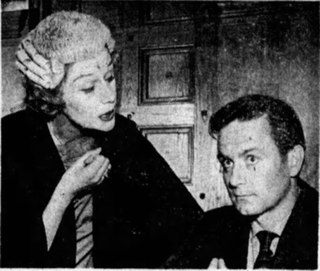
"The Second Man" was an American television play broadcast live on February 12, 1959 as the 100th episode of the CBS television series, Playhouse 90. The cast was led by James Mason. The teleplay was written by Leslie Stevens as an adaptation of the novel, The Second Man, by Edward Grierson.
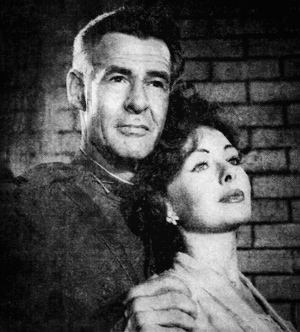
"The Great Gatsby" is an American television play broadcast live on June 26, 1958, as part of the second season of the CBS television series Playhouse 90. David Shaw wrote the teleplay, adapted from the novel of the same name by F. Scott Fitzgerald. Franklin Schaffner directed. Jeanne Crain, Robert Ryan, and Rod Taylor starred, and Rod Serling was the host.
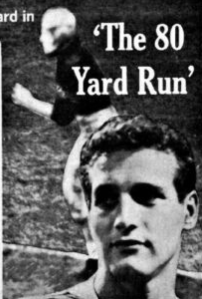
"The 80 Yard Run" is an American television play broadcast on January 16, 1958, as part of the second season of the CBS television series Playhouse 90. Paul Newman and Joanne Woodward co-starred. Franklin Schaffner directed, and David Shaw wrote the teleplay as an adaptation of a story written by his brother Irwin Shaw.

"Turn Left at Mount Everest" was an American television play broadcast on April 3, 1958, as part of the second season of the CBS television series Playhouse 90. Del Reisman wrote the teleplay, as an adaptation of a stage play by Lowell Barrington. Peter Lorre and Fess Parker starred.















